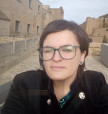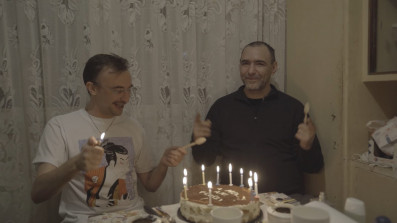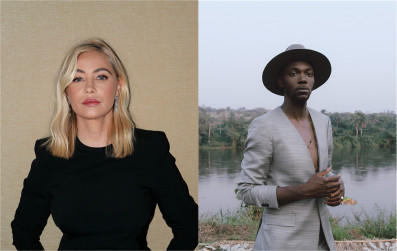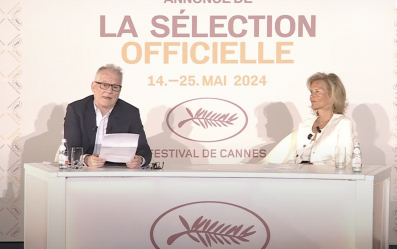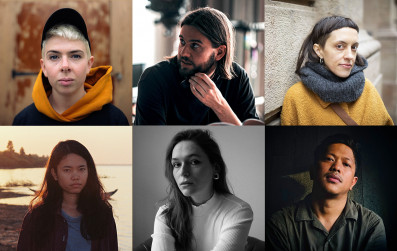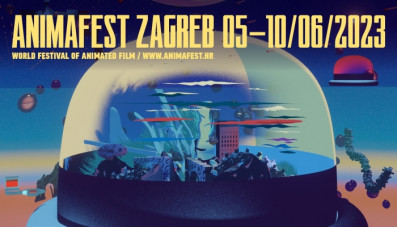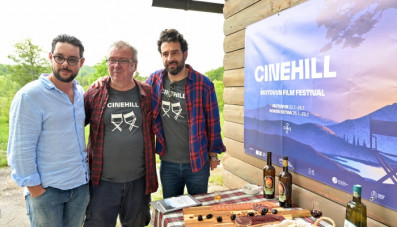GoEast’s Symposium raises awareness about the preservation issues of Eastern European film heritage
Dedicated to cinema created in a situation of political turmoil that led to the collapse and rebuilding of the film industries
One of the first European film events that dares to go back physically to the cinema theatre in the so-called “new normality” is the “Film Heritage in Transition: Central and Eastern Europe 1985–1999” Symposium at the Deutsches Filminstitut & Filmmuseum in Frankfurt, taking place from Friday 24 July to Monday 27 July. Organized by the goEast Festival of Central and Eastern European Film, it is actually among the postponed sections of its 20th edition which was forced to go hybrid last minute and has already streamed online part of the film program earlier in May.
Dedicated to cinema created in a situation of political turmoil that led to the collapse and rebuilding of the film industries in the region, the Symposium addresses the subjects interpreted by notable works at the time but also alarms about the tricky situation that many of the films from the period are facing, as the conditions in which they were created have impacted the practices of their conservation today. As festival director Heleen Gerritsen implies: “Many filmmakers from Central and Eastern Europe treated the upheaval in society during the transitional period in their works, resulting in wild, experimental films as well the breaking of societal and historical taboos. On the other hand, the political changes led to the collapse of state film funding, the bankrupting of whole film studios, the disappearance of film copies and confusion regarding film rights that is still widespread today.” It turns out that plenty of films from this relatively recent period are difficult to access, thus they remain almost forgotten and are even threatened by extinction. Therefore, numerous questions regarding the preservation and availability of these highly significant works remain unresolved to date and namely these will be addressed by film scholars and researchers, filmmakers and archivists in the scope of a host of lectures and panel discussions. The Symposium curators, Prof. Dr. Schamma Schahadat (University of Tübingen) and Dr. Margarete Wach have assembled a comprehensive programme of talks and screenings bringing experts and the general public together for an intimate and fruitful dialogue. Films will be projected from digitally restored copies of rarely screened 35 mm copies. Heleen Gerritsen confirms that “The relocation of the Symposium to the DFF cinema in Frankfurt enables us to realise the originally planned programme almost without omissions”.
The diverse film programme opens with the epic Ulysses’ Gaze (Greece/France/Italy/Germany, 1995, dir. Theo Angelopoulos), which directly addresses the films heritage topic by following Harvey Keitel’s winding trek across the Balkans in search of lost film reels. My Twentieth Century (Hungary/Germany, 1989, Ildikó Enyedi) takes us along on a fairy-tale-like journey through the preceding century in eccentric black-and-white images. I, the Countess (Bulgaria, 1989, dir. Petar Popzlatev) is another aesthetical black-and-white gaze towards the past which features Sisi, the Countess, a Sofia city urban legend of the 60s and a drug addict who has been purposefully outcasted by Bulgarian totalitarian authorities for her “immoral” look and behaviour. Additionally, the programme launches the world premiere of digitized versions of the Ukrainian films Decay (1990, dir. Myhailo Bielikov) and Famine 33 (1991, dir. Oles Yanchuk). Both films tackle topics previously considered too taboo to touch: the former treats the nuclear disaster at Chernobyl, while the latter deals with the Holodomor, the famines that ravaged the population of Ukraine in 1932–33. Probably the heaviest film to watch within the program is The Chekist (Russia/France, 1992, dir. Aleksandr Rogozhkin: a relentless, cold, almost documentary chronicle of instant executions; the first perestroika film about the Bolshevik crimes.
The short film selection on Parallel Cinema, a subversive avant-garde movement that took shape in the final years of the Soviet Union, serves as a testament to the great formal experimentation of the era by cult underground figures such as Aleynikov brothers, Yevgeny Kondratjev and Yevgeny Yufit. The full film programme is available here: www.filmfestival-goeast.de

